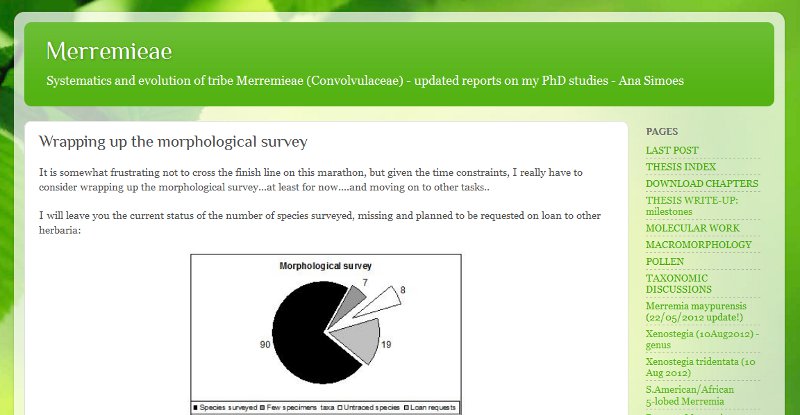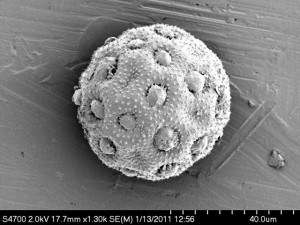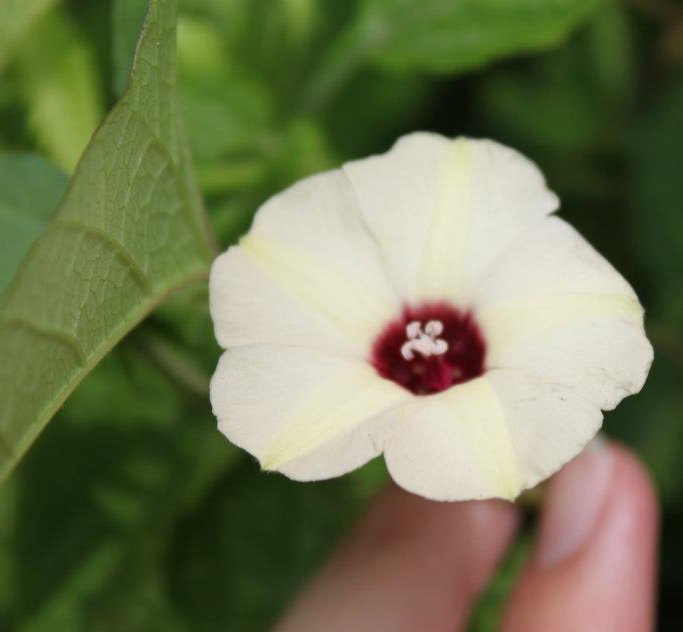Untangling the bindweeds in tribe Merremieae (Convolvulaceae) has been a great challenge.
Convolvulaceae are widely cultivated in Europe in gardens for their beautiful colourful flowers, but are also very well known as the family of the sweet potato. Tribe Merremieae is a particular group that occurs only in the tropics and no one had looked at this group at a global scale before. I have been lucky enough to be able to conduct fieldwork in Asia and Africa and to visit several herbaria to gather and examine material.
My project includes a wide range of different methods, from morphological observations in the field and in herbaria to palynological analyses and molecular techniques. My main goal has been to gather as much information as possible about this group, from both morphology and molecular data, to understand how the species and genera relate to each other. Ultimately, I hope to come up with a classification of the Merremieae which better reflects their relationships.
I am based at the Natural History Museum in London and supervised there by Mark Carine. My PhD is registered at Reading University and supervised there by Alastair. I have a third supervisor based in Singapore – George Staples. To keep all three up to date with my work I have a private blog that I use to store data and communicate my thesis progress.
I am now on my 4th Year of the PhD and getting closer to solving the mysteries of the evolution of the “merremioids”. The molecular phylogeny suggests we need a new classification of this group, and the morphological observations have surprised us with outstanding variation in pollen and fruits, very unusual even within the family Convolvulaceae!
I hope to share my results with the scientific community soon, although I have now even more questions about this intriguing group: how have they dispersed across the tropics? why are some areas such as SE Asia and Eastern Africa more diverse than others? how and why has this explosion of morphological variation occurred?
Publications
Simões, A.R.; Silva, H.; Silveira, P. (2011). The Convolvulaceae of Timor with special reference to East Timor. Blumea – Biodiversity, Evolution and Biogeography of Plants, 56 (1) 49-72






I am interested for this kind of research.